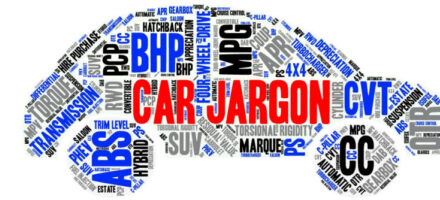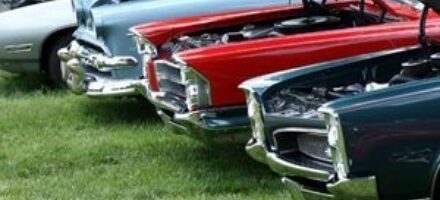
Do you know your BEVs from your PHEVs or whether to go for a PCP or HP finance deal? We break down some of the car jargon basics.
Car jargon buster – understanding basic car terminology
If you’re new to the world of cars, or even if you’re not that new at all, the amount of car-specific language thrown around at every turn can be a little overwhelming. Whether you’re looking at a sales listing, sorting out a finance deal or nodding your head blankly as the mechanic explains what the problem is with your car, it pays (sometimes quite literally) to have a solid grasp on the basic car terminology being spouted at you.
We all tend to pick up an understanding of essential ‘car words’ over time, but if you’re looking for a shortcut to the fundamentals, we’ve put together our glossary of car terminology for dummies that should see you through the worst of everyday automotive spiel.
Car feature basics
The terms you see below are a few of the most common you’re likely to see on a sales listing or as part of a car’s feature list:
-
ABS: Anti-lock braking system – a driver aid that prevents the wheels from locking up and sending the car into a skid under hard braking.
-
AC: Air conditioning.
-
AWD/FWD/RWD/4WD: The four types of drivetrain, indicate the manner in which power is delivered to the wheels. In the order listed, they are all-wheel drive, front-wheel drive, rear-wheel drive and four-wheel drive. Front and rear-wheel drive are fairly self-explanatory – engine power is delivered to the front or rear wheels only. AWD and 4WD both deliver power to all four wheels, but AWD can distribute different levels of power to each wheel while 4WD delivers power to each wheel equally.
-
BHP: Brake horsepower – the standard measure of a car’s power.
-
DAB: Digital Audio Broadcasting or, in simpler terms, a digital radio.
-
GPS: Global Positioning System – the system used for satellite navigation in most cars.
-
ICE: Internal combustion engine, which is a petrol or diesel engine (a term more prevalent now with the rise of electric cars). It can also sometimes mean in-car entertainment, relating to the media system fitted in the vehicle.
-
MPG: Miles per gallon – the standard measurement of fuel consumption/efficiency in the UK.
Electric car terminology
Electric cars are booming in the market, with the electric takeover well and truly on its way. Electric vehicles, both hybrid and fully electric, are often collectively termed EVs, but there are four notable subsections of the EV family:
-
BEV: Battery electric vehicle – a fully electric vehicle.
-
MHEV: Mild hybrid electric vehicle – a vehicle with a small battery pack that assists the combustion engine under certain conditions but offers no electric-only running.
-
PHEV: Plug-in hybrid electric vehicle – a vehicle with a larger battery pack that can be plugged in and charged up. PHEVs can run on electric power alone.
-
ULEV: Ultra-low emissions vehicle – a term used to describe any vehicle which uses low-carbon technology and emits less than 75g of CO2/km in exhaust emissions. ULEVs are largely fully electric vehicles (BEVs), but some PHEVs qualify.
Car finance jargon
Purchasing a car on finance has become the new normal for many consumers and businesses, with over two million cars bought via finance deals in the UK leading up to September 2021. If you’re engaging with a finance deal yourself, there are a few terms to be aware of:
-
APR: Annual percentage rate – the amount rate of interest you’ll pay on the loan total amount of credit you receive as part of your finance deal on an annual basis.
-
HP: Hire purchase – a finance agreement where the borrower pays an upfront deposit and then an agreed amount of set monthly payments to become the legal car owner at the end of the contract period.
-
PCH: Personal contract hire – a leasing deal which allows you a long-term rental of the car. You’ll typically pay an upfront deposit followed by a monthly rate over a few years. Like hire purchase, but cheaper and you give the car back at the end. Though make sure you are aware of excess mileage and return condition clauses.
-
PCP: Personal contract purchase – probably the most popular form of car finance, particularly for new car purchases. You pay an upfront deposit and monthly repayments as with HP or PCH deals, but you have the option to either buy the car at the end, or give it back (subject to Excess mileage and condition charges) or part exchange the vehicle and begin a new PCP deal.
-
Balloon payment: With both HP and PCP deals, the process of purchasing the car at the end of the deal comes with a balloon payment, which is a final lump sum payment that completes the deal and the amount of money owed.
-
Deposit contribution: A discount against the deposit you need to pay to secure your vehicle, usually on a PCP deal. It’s offered as an incentive by car dealers to help secure a new deal and can save you a significant amount of money against getting a new car.
Car dealer terminology
Car sales jargon can come at you thick and fast when you’re down at your local dealer's, but there are a few essentials to know about:
-
Depreciation: As soon as a car rolls off the ales court, it begins to lose value. This process is known as depreciation. As a buyer, depreciation concerns your car’s value when you sell it. Ideally, you want to find a car that doesn’t depreciate in value too heavily. You can find out more about it here.
-
Ex-demo: An ex-demonstration vehicle, ie. one that has been used for test drives. These are essentially new vehicles barring the mileage and use generated on test drives but are sold cheaper than brand-new equivalents to account for that use. Great if you’re looking for a deal, as ex-demo cars will be well maintained and have low mileage.
-
Full-service history: Assuming a used car has been well looked after, it should have a full-service history. This comes with a stamped service book that details the car’s entire dealer service history. Ideally, you want to buy a used vehicle with a full-service history.
-
Part Ex: Short for part-exchange, which involves using your old vehicle as partial payment for a new one.
We’ll keep things simple at Jardine

We might sell a top range of luxury cars at Jardine, but that doesn’t mean things have to be complicated. Whether you’re looking to buy new or used, or you’re after a service or MOT for your car, we’re on hand to help you find exactly what you’re looking for in the simplest terms possible.
Visit your nearest Jardine dealer today or get in touch with us to find out more.
You might also like
Don’t forget to visit our YouTube channel, where you can find all sorts of car reviews and expert advice.




